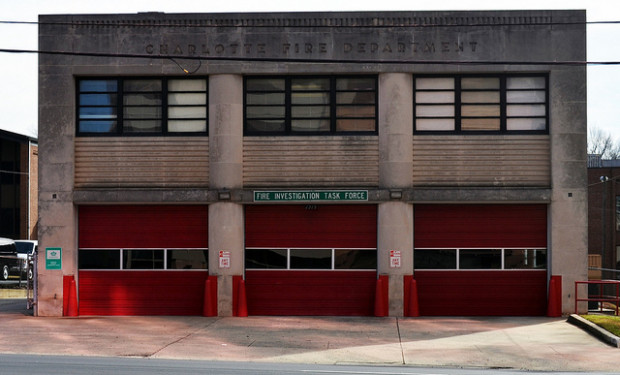How free is free speech for government employees?
Two employees who were fired by the City of Charlotte for Facebook posts may have First Amendment claims.
This article is the first in a three-part series on freedom of speech on social media.
Employees are constantly told to be careful about what they post on social media sites because their employers could happen to see the posts. For two employees of the City of Charlotte, their failure to follow this advice came back to haunt them and ultimately cost them their jobs.
Charlotte Fire Investigator Crystal Eschert was fired in October 2014 for publishing a Facebook post in which she questioned the lack of public outrage after a white man was shot by police in Ferguson, Missouri. In another Facebook post, Charlotte Deputy Fire Chief Jeff Dulin published a picture that had been circulating around Facebook that featured two pictures of Bruce Jenner. The first picture was from Jenner’s appearance on the Wheaties box following the 1976 Olympics. The second picture showed Jenner today in transition of gender reassignment digitally imposed upon a box of Fruit Loops. Unlike Eschert, Dulin was not the originator of the Facebook post that resulted in his February 2015 termination.
Governmental bodies, when acting as employers, are allowed to curtail the speech of their employees when they find the employees’ speech to be counter to government policies. The rationale is that government employees serve as representatives of the government, and their speech could be attributed to the government. Since government employees are potential mouthpieces for the government, the government is allowed to filter the messages that are presented to the public. Both Charlotte Fire Chiefs face difficulties in raising First Amendment claims because they are employed by the City of Charlotte to make public statements on its behalf.
The government’s ability to regulate speech by employees, however, is not carte blanc. According to the 2006 U.S. Supreme Court case of Garcetti v. Ceballos, only statements that are related to the work that a government employee performs in the scope of his or her employment are rendered unprotected by the First Amendment. Conversely, statements that fall outside the scope of an employee’s job description may be entitled to First Amendment protections. The statements that Eschert and Dulin have authority to make as part of their job descriptions are confined to issues dealing with fire safety. Their jobs are not related in any way to the subject matter for which they were punished.
The Supreme Court has long held that governmental employers cannot use employment opportunities to infringe upon the free expression rights of its employees. The government needs a reason for treating employees differently from other citizens in curtailing their speech. A need to preserve the confidential nature of certain information, for instance, is a reason that would justify the suppression of certain speech. The City of Charlotte would likely claim that the firing of these individuals was based upon its policies of anti-discrimination regarding the LGBT community as well as its desire to promote racial sensitivity with regard to the events in Ferguson.
The making of these statements by any other citizen in a private setting would not subject the speaker to the loss of his or her job. At what point does a government employee’s private Facebook page cross the line from being mere private communications to something that is sufficiently in the public eye that it could cause the government employee to lose his or her job? Surely the Founding Fathers did not intend for citizens to give up their right to free expression upon entering public office.
There is a point at which a person’s speech is considered to be entirely his or her own and not representative of the government. A public employee speaking on matters of public concern is allowed to express his or her opinion. The argument could be made that gender and racial issues qualify as matters of public concern because of the significant amount of public discourse that has occurred recently concerning these topics. A governmental employer being offended by an employee’s speech is not enough of a reason to curtail that speech.






